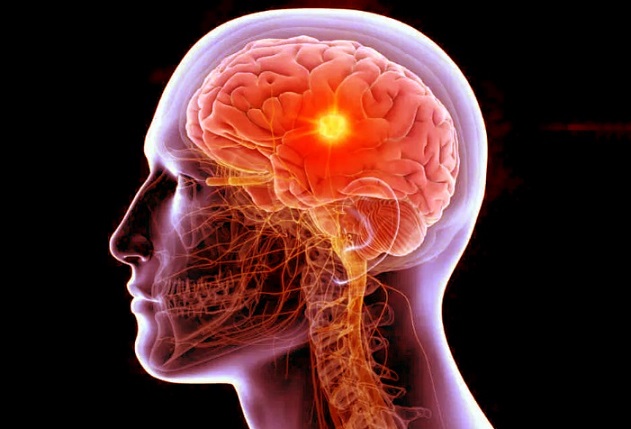Nikhil Prasad Fact checked by:Thailand Medical News Team Jul 15, 2025 7 months, 1 week, 3 days, 4 minutes ago
Thailand Medical News: Clozapine Shows Promise as an Unlikely Cancer Killer
A new study from researchers at the University of Porto in Portugal has uncovered surprising evidence that clozapine—an antipsychotic medication typically used to treat schizophrenia—might help kill deadly brain cancer cells, including those found in glioblastoma and neuroblastoma.
 Clozapine Found to Kill Brain Cancer Cells in Lab Tests
Clozapine Found to Kill Brain Cancer Cells in Lab Tests
Led by Catarina Moura, Maria João Gouveia, and Professor Nuno Vale, scientists from the PerMed Research Group and ICBAS at the Faculty of Medicine, University of Porto, tested six old drugs on cancer cells in the lab. This
Thailand Medical News report focuses on clozapine, which showed the strongest anti-cancer effect in both types of brain cancer cells.
How the Study Was Done
The team focused on two types of aggressive tumors: glioblastoma (common in adults) and neuroblastoma (mostly affecting children). They tested four antipsychotic drugs (clozapine, pimozide, olanzapine, risperidone) and two anti-nausea drugs (domperidone and droperidol) to see if they could slow or stop cancer cell growth in the lab.
Among all tested, clozapine—despite its reputation for serious psychiatric side effects—was the most toxic to cancer cells. It worked especially well in neuroblastoma cells and also showed effectiveness in glioblastoma cells, even when the environment was made stressful with hydrogen peroxide (a chemical that mimics conditions of oxidative stress in the body).
Tyrosine and Stress Enhanced the Drug's Power
The researchers also looked at what happened when clozapine was combined with tyrosine (a building block of dopamine) or hydrogen peroxide. In both cases, clozapine’s ability to kill cancer cells became stronger. This suggests the drug's effectiveness might be linked to how cancer cells use dopamine or respond to stress.
In neuroblastoma cells, the combination of clozapine, tyrosine, and hydrogen peroxide resulted in the strongest cancer-killing effect. In glioblastoma cells, clozapine also performed well, especially at higher doses and when combined with oxidative stress. The team also found that the cancer cells used up large amounts of tyrosine, suggesting they may rely on it to survive.
Why Clozapine Might Work
Clozapine interacts with dopamine receptors, which are not only found in the brain but also play a role in certain cancers. Dopamine pathways are now being looked at as potential cancer targets. The study suggests that clozapine disrupts these pathways, damaging the cancer cells’ ability to function.
Interestingly, while clozapine was effective, other drugs like olanzapine and droperidol showed little to no effect. This highlights the unique cancer-fighting potential of clozapine among similar medications.
Conclusion
This new research reveal
s that clozapine, a drug originally developed to treat severe psychiatric disorders, may offer hope as a future brain cancer treatment. Though it is known for its side effects and requires close monitoring, its ability to kill cancer cells—even under tough conditions—makes it a candidate for further testing. More studies, especially in animals and humans, will be needed to see if clozapine can be safely used as part of brain cancer treatment. Its dual effect—interfering with dopamine and enhancing stress inside tumor cells—may open the door to new strategies in neuro-oncology.
The study findings were published in the peer-reviewed journal: Life
https://www.mdpi.com/2075-1729/15/7/1097
For the latest Cancer News, keep on logging to
Thailand Medical News.
Read Also:
https://www.thailandmedical.news/news/university-of-mississippi-study-shows-that-juice-of-the-cornelian-cherry-can-help-with-glioblastoma
https://www.thailandmedical.news/news/metformin-shows-potential-as-an-angiogenic-supplemental-adjuvant-for-glioblastoma-treatment
https://www.thailandmedical.news/news/herbs-and-phytochemicals-bioactive-compounds-from-kiwiberry-found-to-be-useful-in-treating-glioblastoma
